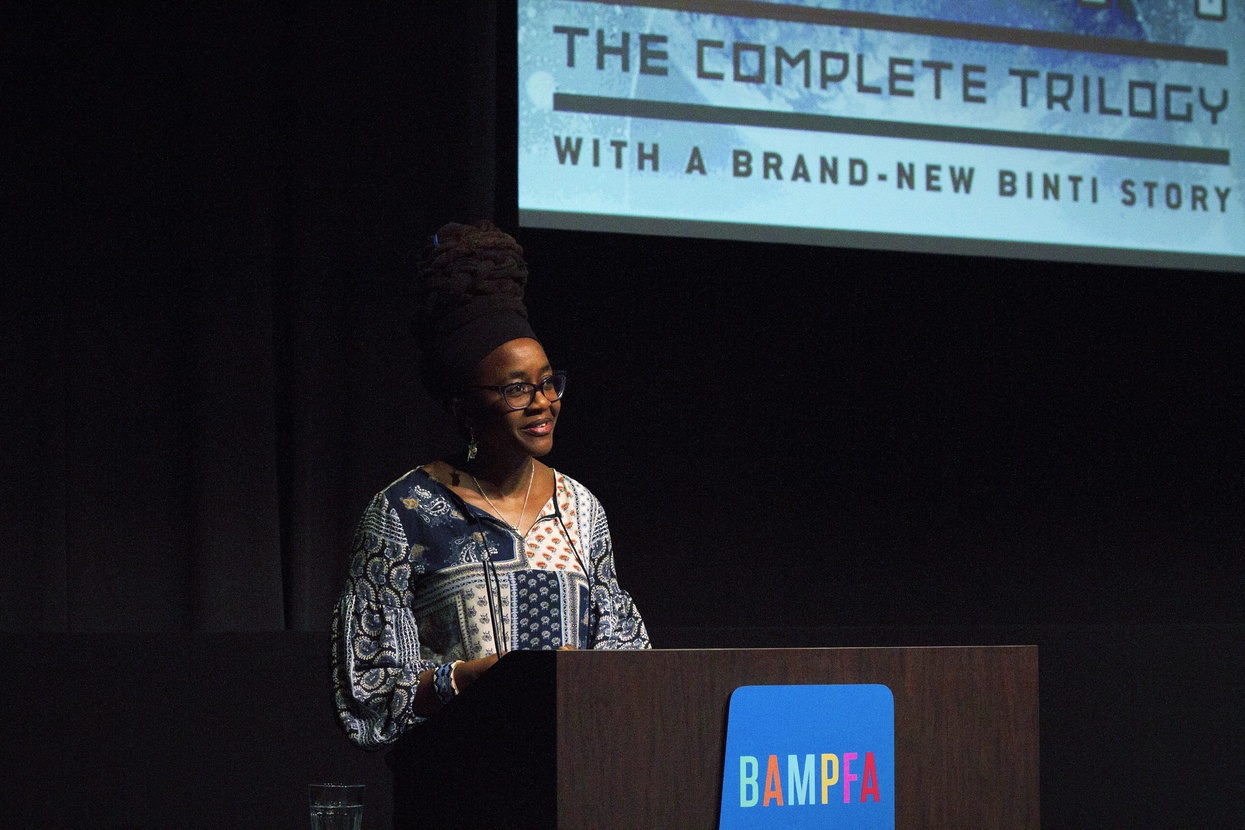ATC Revisited: Nnedi Okorafor

Recap by KC Forcier, the 2018-2019 Graduate Liaison for the Art, Technology, and Culture Colloquium.
Nnedi Okorafor, author of more than a dozen award-winning works of science fiction, fantasy and magical realism, read aloud from two of her novels at Monday night’s ATC lecture. Binti (2015) and Who Fears Death (2014) both draw on Nigerian myths and legends while imagining alternative universes inspired by present-day Africa. In a discussion following the reading Okorafor spoke about how, as the American daughter of Nigerian immigrants, spending summers visiting relatives in Nigeria gave her a unique perspective on African traditions as well as on contemporary African culture. “I started noticing technology more, and how it intersects with culture in an interesting way,” she said, noting that her science fiction is inspired by observing the way technology is lived and used in West African cultures today. She described being overwhelmed in her first visits to Lagos: “It’s like New York on crack. So much happens there, it’s full of life and death. It’s old, it’s new, it is the African future.”
It was this vision of modern Africa that gave shape to her fictional worlds, which depict cultures deeply steeped in ancient myths and magical beliefs while simultaneously embracing futuristic technology. The Binti trilogy features a world in which intergalactic space travel and genetic modification are interwoven with magic and tradition. Some of this vision draws on Okorafor’s own philosophy of technology, which is firmly rooted in the natural world. “The greatest technology is nature,” she said when asked about what she would design for the future. “If we move with nature we’ll move faster than if we move against it.”
The blending of the ancient and the modern is a preoccupation of her novels on many levels, and comes through in the way she addresses gender. As Donna Jones, Professor of English at UC Berkeley pointed out in their conversation following the reading, many of Okorafor’s stories feature strong female protagonists who make deliberate choices about aspects of their heritage that are harmful to them, or that they feel ambiguous about. Okorafor acknowledged that as much inspiration as she took from traditional culture, she was also keenly interested in the ways in which traditions reproduce oppression. “The patriarchy is something I’ve been pushing back against for a long time,” she said.
While Okorafor’s work offers hopeful and imaginative alternate realities, they are also worlds in which individuals grapple with the history of injustice. When asked about what we could do today to make the optimism of her science fiction stories part of our possible futures, Okorafor emphasized the importance of listening. “I encourage open understanding and dialogue. Listening is underrated. Listen and consider first before entering a dialogue. Calming the need to talk back immediately is a useful tool right now.”

